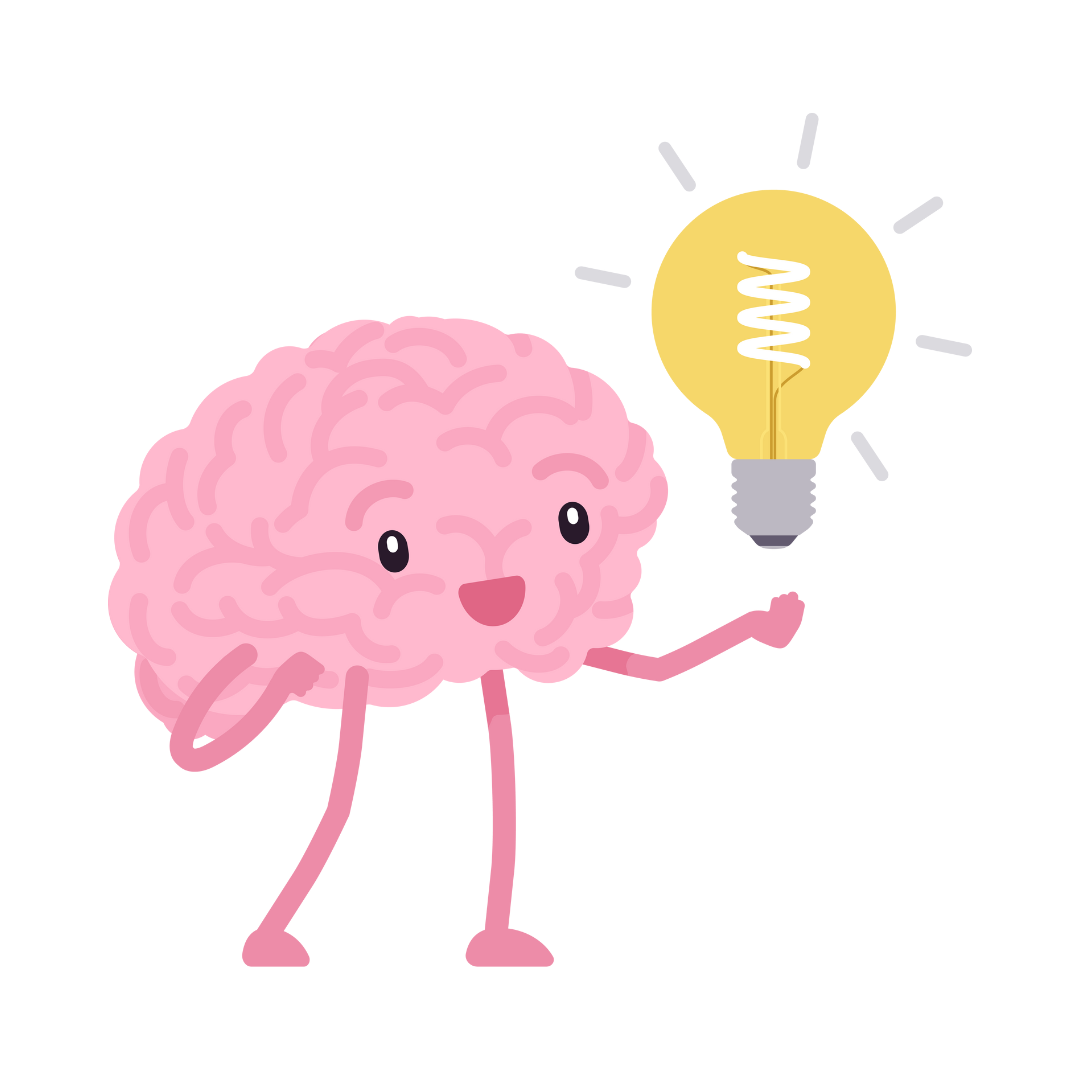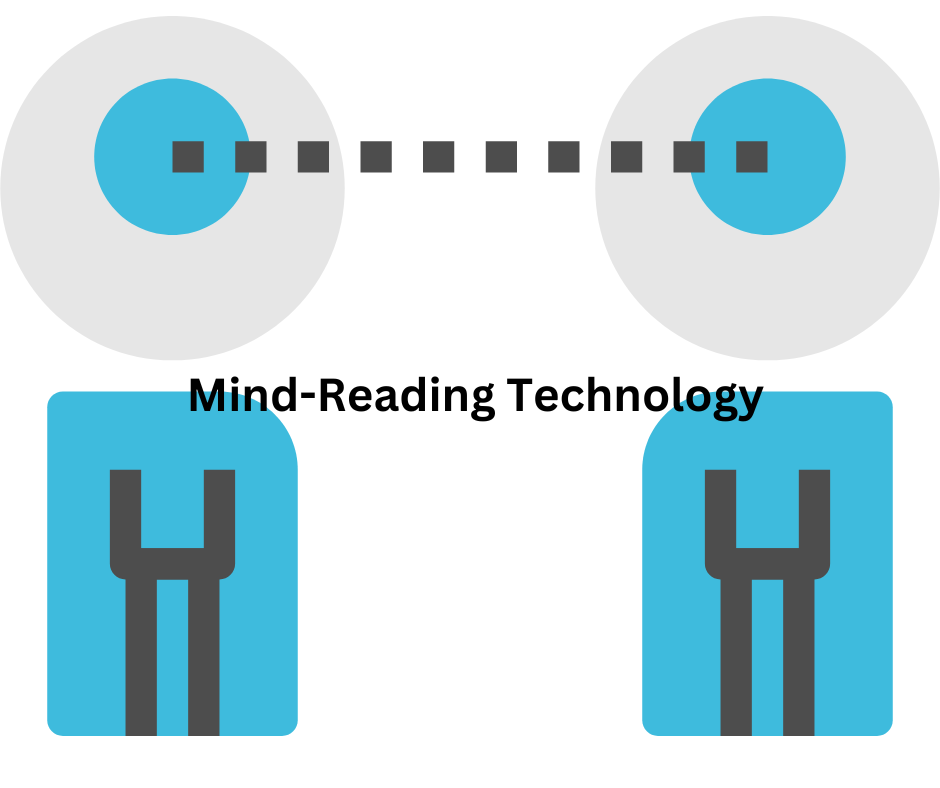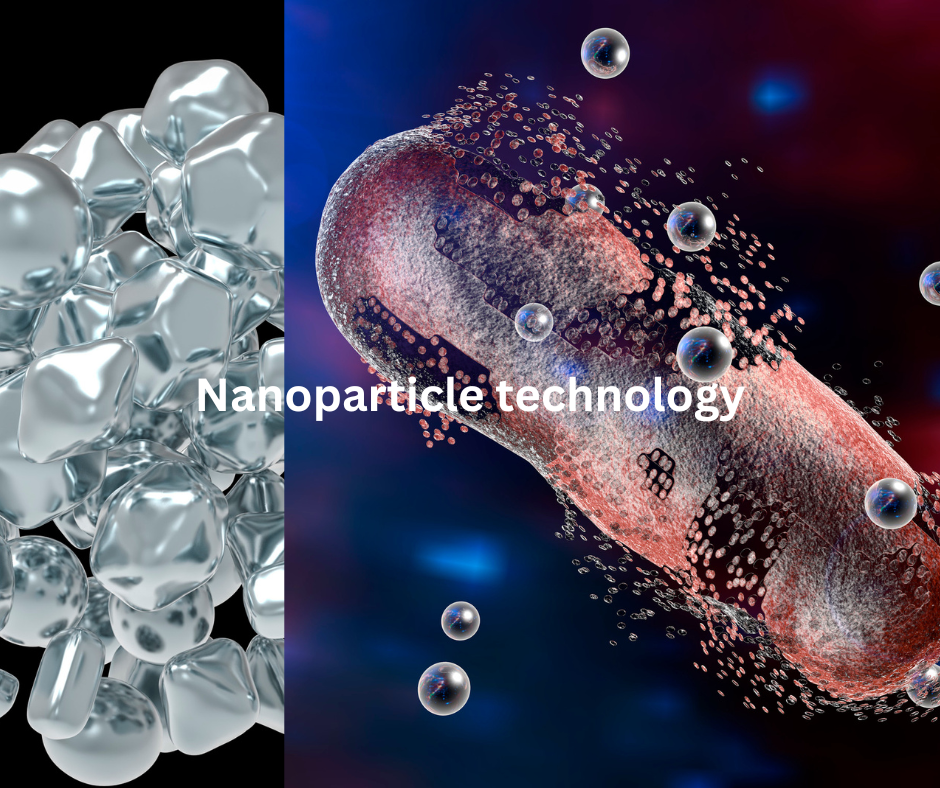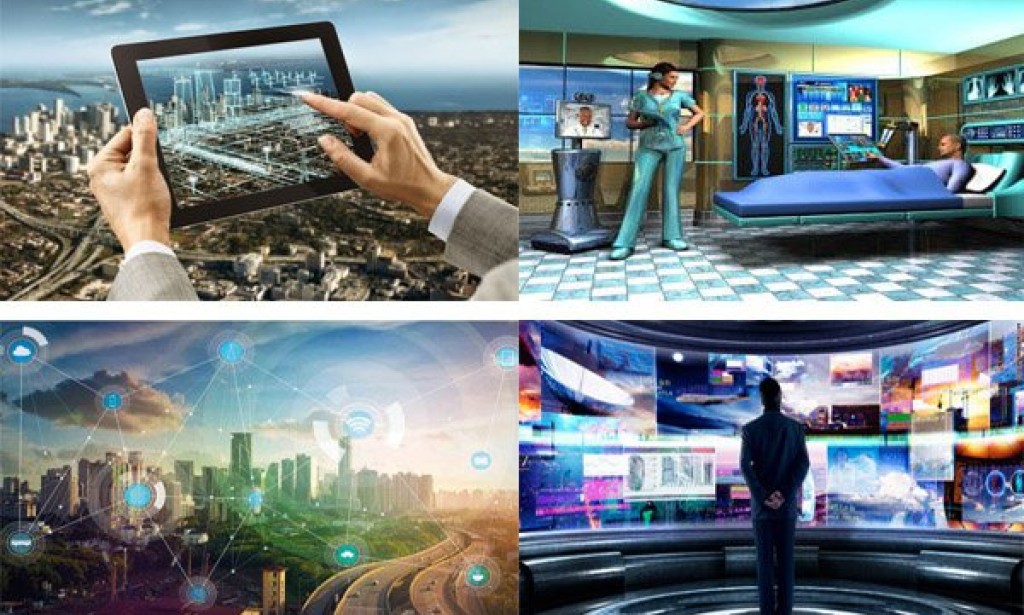Hundred (100) Potential Inventions of science, 2023
1. Neuralink's Brain-Computer Interface Devices
Over the next few years, Neuralink's revolutionary technology may gain widespread adoption, allowing people to control devices with their minds.

2. Virtual Reality Exercise Equipment
As VR gaming continues to grow in popularity, there may be a new market for exercise equipment that immerses athletes and fitness gurus in realistic, fully immersive environments.
3. Solar-Powered Drones
With constant improvements in solar power and drone technology, we may soon have drones that can fly for days or even weeks without needing a recharge.
4. Smart Contact Lenses
Imagine wearing contact lenses that not only help you see more clearly, but also provide vital health data and notifications about your daily schedule.

5. Wireless Charging Clothes
No more worrying about losing your phone charger when you're out of the house – just put on your favorite jacket or shirt and you'll be recharging all day long.
6. Self-Driving Electric Cars
We're already seeing plenty of self-driving car prototypes on the road, and by 2023 there may be electric vehicles that can drive themselves completely autonomously.
7. Augmented Reality Smart Glasses
With the rise of AR technology, it's possible that we'll start seeing smart glasses that create an entirely new layer of information and functionality in our everyday lives.
8. Carbon-Capturing Machines
Climate change is a growing concern, and to mitigate its effects, we may see more machines that can remove carbon dioxide from the air and store it safely underground.
9. 3D-Printed Synthetic Meat
As we move away from traditional farming, one potential solution to feed the world is 3D-printed synthetic meat, which can be customized for taste and texture.
10. Smart Water-Filtering Systems
As clean water becomes increasingly scarce, there may be more demand for smart water filters that can remove pollutants and automatically reorder replacement filter cartridges.
11. Quantum Computing
With the potential to solve complex problems that are impossible for classical computers, quantum computing may become more accessible and widely used in various industries.
12. Personalized Medicine
Advances in genetics and technology may lead to personalized medicine, where treatments are tailored to an individual's genetic makeup for better effectiveness.
13. AI-Powered Personal Assistants
As artificial intelligence continues to improve, we may see more sophisticated personal assistants that can anticipate our needs and make decisions on our behalf.
14. Biodegradable Plastics
With growing concerns about plastic waste, biodegradable plastics made from sustainable materials may become more prevalent in packaging and manufacturing.
15. Vertical Farming
To address food scarcity in urban areas, vertical farming allows for crops to be grown in stacked layers using less space and resources than traditional farming methods.
16. Smart Homes with Voice Control
As home automation becomes more popular, voice-activated smart homes may become the norm, allowing homeowners to control everything from lighting to temperature with simple commands.
17. 5G Networks
The next generation of wireless networks promises faster speeds and lower latency, enabling new technologies such as autonomous vehicles and remote surgery.
18. Blockchain Technology
Beyond cryptocurrency, blockchain technology has potential applications in industries such as supply chain management and secure data sharing.
19. Nanotechnology
With the ability to manipulate matter at a molecular level, nanotechnology may lead to breakthroughs in fields such as medicine and electronics.
20. Space Tourism
Private companies are already offering trips into space for wealthy individuals, but by 2023 we may see more affordable options for regular people to experience space travel.
21. Augmented Reality Fashion
With the rise of AR technology, fashion may become more interactive and customizable, allowing customers to try on virtual outfits and accessories before making a purchase.
22. Biometric Security Systems
As data privacy concerns continue to grow, biometric security systems that use unique physical characteristics such as fingerprints or facial recognition may become more widely adopted for secure access to devices and information.
23. Smart City Infrastructure
With the increasing urbanization of populations, smart city infrastructure that uses sensors and data analysis to optimize traffic flow, energy usage, and waste management may become more prevalent.
24. Personalized Education - Advances in AI technology may lead to personalized education systems that tailor learning experiences to each student's individual needs and abilities.
25. Advanced Robotics
With advancements in robotics technology, we may see robots that can perform complex tasks in a variety of industries such as manufacturing, healthcare, and construction.
26. Quantum Encryption
As data security becomes increasingly important, quantum encryption technology may provide an unbreakable level of protection for sensitive information.
27. Smart Retail Stores
With the integration of AI and IoT technology, retail stores may become more intelligent and intuitive with features such as personalized recommendations based on customer data and automated checkout systems.
28. Hydrogen-Powered Vehicles
As we move towards cleaner energy sources, hydrogen-powered vehicles may become a viable alternative to traditional gasoline engines.
29. 4D Printing
Building off of 3D printing technology, 4D printing allows for objects to change shape or adapt over time through the use of responsive materials.
30. Mind-Reading Technology
While still in its early stages of development, mind-reading technology using brain-computer interfaces has potential applications in fields such as medicine and communication.

31. Wearable Health Monitor
With the increasing focus on personal health and wellness, wearable devices that can track vital signs and monitor health data may become more advanced and accessible.
32. Smart Traffic Management Systems
To combat traffic congestion in urban areas, smart traffic management systems that use realtime data analysis to optimize traffic flow may become more widespread.
33. Energy-Generating Windows
Using solar cells integrated into windows, buildings may be able to generate their own renewable energy while still allowing natural light to enter.
34. Biodegradable Electronics
As electronic waste continues to be a growing concern, biodegradable electronics made from sustainable materials may become more prevalent in consumer electronics.
35. Personalized Nutrition
Advances in genetics and nutrition science may lead to personalized nutrition plans tailored to an individual's unique genetic makeup for better health outcomes.
36. Smart Waste Management Systems
To reduce waste and improve recycling efforts, smart waste management systems that use sensors and data analysis may become more common in cities and businesses.
37. Autonomous Delivery Drones
With the rise of e-commerce, autonomous delivery drones may become a more efficient way to transport goods over short distances.
38. Advanced Prosthetics
With advancements in robotics and AI technology, prosthetic limbs may become more advanced and responsive, allowing for greater mobility and functionality for amputees.

39. Smart Grids
To improve energy efficiency and reliability, smart grids that use real-time data analysis to balance supply and demand may become more prevalent in power distribution networks.
40. Holographic Displays
Using holographic technology, displays may become more immersive and interactive, allowing for new possibilities in entertainment, education, and communication.
41. Biodegradable Batteries
With the increase in electronic devices, there is a growing concern about battery waste. Biodegradable batteries made from sustainable materials may become more prevalent and eco-friendly.
42. Personalized Fitness Plans
Advances in technology and fitness science may lead to personalized fitness plans tailored to an individual's unique genetic makeup and lifestyle for better health outcomes.
43. Smart Waste Sorting Systems
To improve recycling efforts, smart waste sorting systems that use sensors and data analysis may become more common in households and businesses.
44. Autonomous Agriculture
With advancements in robotics technology, we may see autonomous agriculture machines that can perform tasks such as planting, harvesting, and fertilizing crops without human intervention.
45. Smart Energy Storage Systems
To store renewable energy efficiently, smart energy storage systems that use real-time data analysis to balance supply and demand may become more prevalent in households and businesses.
46. Quantum Sensors
With the ability to detect incredibly small changes in physical properties, quantum sensors have potential applications in fields such as medicine, geology, and navigation.
47. Augmented Reality Advertising
With the rise of AR technology, advertising may become more interactive and engaging with features such as virtual product demonstrations or immersive brand experiences.
48. Smart Traffic Lights
To optimize traffic flow at intersections, smart traffic lights that use real-time data analysis may become more widespread in cities around the world.
49. Advanced Materials
With advancements in material science, we may see new materials with incredible properties such as super-strength or self-healing capabilities used in various industries from construction to aerospace.
50. Personalized Transportation Services
Advances in AI technology may lead to personalized transportation services that tailor routes and modes of transportation based on an individual's preferences and needs for efficient travel experiences.
51. Autonomous Underwater Vehicles
With the increasing need for ocean exploration and research, autonomous underwater vehicles may become more prevalent in the coming years.
52. Smart Waste Disposal Systems
To reduce waste and improve recycling efforts, smart waste disposal systems that use sensors and data analysis may become more common in households and businesses.
53. Brain-Computer Gaming Interfaces
As gaming continues to evolve, brain-computer interfaces may allow players to control games with their thoughts for a truly immersive experience.
54. Personalized Beauty Products
Advances in genetics and skincare science may lead to personalized beauty products tailored to an individual's unique genetic makeup for better results.
55. Smart Security Systems
Using AI and IoT technology, smart security systems may become more advanced and intuitive with features such as facial recognition and automated alerts.
56. 3D-Printed Organs
As we continue to push the boundaries of medical technology, 3D-printed organs may become a viable solution for organ replacement without the need for donors.
57. Quantum Sensors for Medical Imaging
With their ability to detect incredibly small changes, quantum sensors have potential applications in medical imaging for earlier disease detection and diagnosis.
58. Smart Farming
Using IoT technology, smart farming allows farmers to monitor crops remotely and optimize yield through real-time data analysis.
59. Augmented Reality Education
With the rise of AR technology, education may become more interactive and engaging with features such as virtual field trips or immersive historical reenactments.
60. Personalized Financial Planning
Advances in AI technology may lead to personalized financial planning services that tailor investment strategies based on an individual's risk tolerance and financial goals.
61. Smart Home Healthcare
With the aging population and increasing healthcare costs, smart home healthcare systems that use sensors and data analysis may become more prevalent to monitor vital signs and detect health issues early on.
62. Self-Healing Materials
Building off of advanced materials technology, self-healing materials may become more prevalent in various industries such as construction or transportation for increased durability and safety.
63. Augmented Reality Travel
With the rise of AR technology, travel experiences may become more immersive with features such as virtual tours or interactive language translation.
64. Personalized Mental Health Treatments
Advances in genetics and mental health science may lead to personalized treatments tailored to an individual's unique genetic makeup for better outcomes.
65. Smart Waste Reduction Campaigns
To promote waste reduction efforts, smart campaigns that use data analysis to target specific areas or demographics may become more common in cities around the world.
66. Autonomous Public Transportation
With advancements in autonomous vehicle technology, public transportation systems may become fully autonomous for increased efficiency and reduced traffic congestion.
67. Quantum Cryptography
As data security becomes increasingly important, quantum cryptography technology may provide an unbreakable level of protection for sensitive information transmission.
68. Smart Supply Chain Management
Using IoT technology, supply chain management systems may become more efficient and transparent with real-time tracking and optimization capabilities.
69. Personalized Mental Wellness Apps
Advances in AI technology may lead to personalized mental wellness apps that provide tailored support based on an individual's needs and goals.
70. Biodegradable Packaging Materials
With growing concerns about plastic waste, biodegradable packaging made from sustainable materials may become more prevalent in consumer goods industries.
71. Smart Disaster Response Systems
Using real-time data analysis and predictive modeling, smart disaster response systems can improve emergency response times and reduce casualties during natural disasters.
72. Autonomous Construction Equipment
With advancements in robotics technology, construction equipment such as bulldozers or cranes may become fully autonomous for increased safety and efficiency on job sites.
73. Quantum Communication Networks
Using quantum encryption technology, communication networks can be made even more secure with unbreakable encryption methods.
74. Personalized Home Decor Services
Advances in AI technology may lead to personalized home decor services that tailor design recommendations based on an individual's preferences and lifestyle for a truly unique living space.
75. Smart Waste Tracking Systems
To improve recycling efforts, smart waste tracking systems that use sensors and data analysis can monitor waste production rates and identify areas for improvement in households or businesses.
76. Biodegradable Cleaning Products
As environmental concerns continue to grow, biodegradable cleaning products made from sustainable materials may become more prevalent in households and businesses.
77. Smart Water Conservation Systems
With the increasing demand for water resources, smart water conservation systems that use sensors and data analysis may become more common in homes and public spaces.
78. Personalized Travel Experiences
Advances in AI technology may lead to personalized travel experiences that tailor itineraries based on an individual's preferences and interests for a truly unique vacation.
79. Smart Waste Composting Systems
To reduce waste and improve soil quality, smart waste composting systems that use sensors and data analysis can optimize composting processes in households or communities.
80. Autonomous Emergency Response Vehicle
With advancements in autonomous vehicle technology, emergency response vehicles such as ambulances or fire trucks may become fully autonomous for faster response times and improved safety.
81. Quantum Computing Security
As quantum computing becomes more prevalent, new security measures will need to be developed to protect against potential threats such as hacking or data breaches.
82. Personalized Pet Care Services
Advances in AI technology may lead to personalized pet care services that tailor recommendations based on an individual pet's needs and behaviors for better health outcomes.
83. Smart Air Quality Monitoring Systems
To address growing air pollution concerns, smart air quality monitoring systems that use sensors and data analysis can provide real-time information about air quality levels in cities or indoor spaces.
84. Autonomous Shipping Vessels
With advancements in autonomous vehicle technology, shipping vessels may become fully autonomous for increased efficiency and reduced costs in the shipping industry.
85. Quantum Sensing for Climate Change Research
Using quantum sensing technology, climate change researchers can detect small changes in physical properties such as temperature or humidity for better understanding of global climate patterns.
86. Personalized Home Security Services
Advances in AI technology may lead to personalized home security services that tailor recommendations based on an individual's home layout and security needs for improved protection against intruders or burglars.
87. Smart Waste-to-Energy Systems
To reduce waste while generating renewable energy, smart waste-to-energy systems that use sensors and data analysis can optimize the conversion process of waste into energy sources such as electricity or heat.
88. Autonomous Mining Equipment
With advancements in robotics technology, mining equipment such as excavators or bulldozers may become fully autonomous for increased safety and efficiency on mining sites.
89. Quantum Sensors for Environmental Monitoring
Using quantum sensing technology, environmental researchers can detect small changes in physical properties such as temperature or pressure for better understanding of natural ecosystems or geological processes.
90. Personalized Fashion Recommendations
Advances in AI technology may lead to personalized fashion recommendation services that tailor outfit suggestions based on an individual's style preferences and body type for a more confident wardrobe selection.
91. Smart Marine Conservation Systems
To protect marine life from human activities such as overfishing or pollution, smart marine conservation systems that use sensors and data analysis can monitor ocean health conditions and enforce regulations against harmful practices.
92. Autonomous Aviation Technology
With advancements in aviation technology like drones; aviation vehicles are expected to become fully autonomous which will revolutionize the transportation industry by providing faster delivery services with reduced costs without human intervention
93.Quantum Computing Optimization
As quantum computing continues to evolve; optimization techniques are being developed using this new computing paradigm which promise huge opportunities across various industries including finance; logistics; healthcare; among others
94.Personalized Mental Health Chatbots
These chatbots are providing advice to patients. They enhance cmmunication of patients having mental health problems. Advances in natural language processing (NLP) have opened up the possibility of developing chatbots capable of providing mental health support tailored to individuals' specific needs through text-based conversations.
95.Smart Food Delivery
The rise of food delivery services has led companies like Amazon experimenting with utilizing IoT enabled devices like drones & robots which will enable smarter food delivery options with real-time tracking & automation features.
96. Liquid solar fluid
With other advances in technology scientists have designed a liquid solar fluid for storing electricity for more than 18 years.
97. Batteries
With advances in industries, New technology for batteries have been designed. They have found multiple applications in industries. Commercial production of sodium ion batteries have been initiated along with Litium ion batteries.
98. Nanoparticle technology
It is the manupulation of matter on atomic scale to design new materials and structures. This technology has lead to scientific adnvancement in the field of ceramics, glass industry, electronics, medicine sector, consumer products etc.

99. Polymer synthesis technology
New inorganic and organic polymers are designed to use them in household, industry etc. Low density polyethylene are the most common polymer.
100. Bioplastic technology
Bioplastic technology utilizes biopolymers along with agriculture waste to generate a bioplastic which is environmental friendly and formed by converting sugar in plants to platic.
Above mentioned technologies are vital in every field of life. All are utilizing in our daily life. These technologies are emerging day-by-day and reserchers are intrested to evlaute Eco-friendly and pollution free products out of these technologies.



You must be logged in to post a comment.